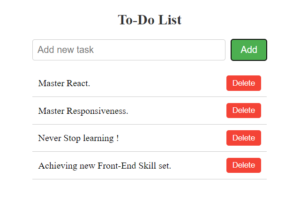Optimizing performance is crucial for ensuring a fast and efficient Django application. Here are some Django performance optimization techniques you can apply:
- Database Optimization:
- Use database indexing: Add appropriate indexes to your database tables to speed up query execution.
- Use
select_relatedandprefetch_related: Use these methods to optimize database queries by reducing the number of database hits and fetching related objects in a single query. - Optimize database queries: Analyze and optimize your database queries by minimizing unnecessary joins, reducing the number of queries, and using efficient filtering and ordering techniques.
- Caching:
- Use caching mechanisms: Utilize Django’s built-in caching framework or external caching systems like Redis or Memcached to cache frequently accessed data and reduce the load on the database.
- Cache template fragments: Cache expensive or frequently rendered template fragments using the
{% cache %}template tag.
- Static Files:
- Enable static file compression: Compress your static files (CSS, JavaScript) to reduce their size and improve load times.
- Use a content delivery network (CDN): Offload the serving of static files to a CDN to distribute the files globally and reduce latency.
- Middleware and Request Processing:
- Minimize middleware usage: Limit the number of middleware classes used in your Django application, as each middleware adds overhead to the request processing pipeline.
- Use middleware selectively: Place middleware classes that perform expensive operations or authentication checks only on relevant URLs or routes.
- Query Optimization:
- Limit querysets using
values()oronly(): Select only the required fields from the database by usingvalues()oronly()methods on querysets to reduce the data transferred from the database. - Use
defer()andselect_related(): Usedefer()to delay loading of specific fields until they are explicitly accessed, andselect_related()to fetch related objects in a single query.
- Template Optimization:
- Minimize template rendering: Optimize template rendering by reducing the number of template tags and filters, avoiding complex logic in templates, and pre-rendering repetitive or static content.
- Use template caching: Cache the rendering of complex or frequently used templates to avoid re-rendering the same content repeatedly.
- Media and File Handling:
- Offload file serving: Use a separate file server or a dedicated file storage service like Amazon S3 to serve user-uploaded media files and reduce the load on your Django application server.
- Use Pagination:
- Implement pagination for large datasets: Use Django’s pagination features to limit the number of records returned in a single request and provide paginated views for better performance.
- Performance Monitoring and Profiling:
- Use monitoring tools: Utilize performance monitoring tools like Django Debug Toolbar, New Relic, or Datadog to identify bottlenecks and monitor performance metrics.
- Profile your code: Use Django’s built-in profiling tools or third-party libraries like Django Silk to identify performance bottlenecks in your code.
- Load Testing and Scaling:
- Perform load testing: Test your Django application’s performance under heavy load using tools like Apache JMeter or locust to identify and address performance issues.
- Scale your application: Consider scaling your Django application horizontally by adding more application servers behind a load balancer to distribute the traffic.
Remember to analyze and profile your application to identify specific performance bottlenecks and apply optimizations accordingly. Additionally, leverage Django’s built-in performance optimization features and keep an eye on Django’s documentation and community resources for updates and best practices.



